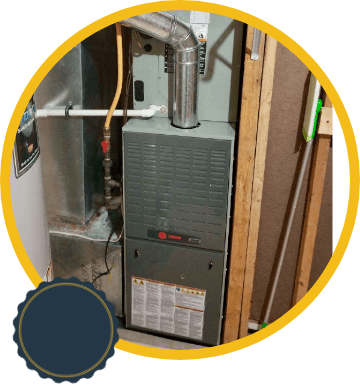Top-Rated Fallston Furnace Services
Many furnace problems start with HVAC air filters. When covered in large, lint-like coatings of debris, furnace filters impede airflow. Airflow obstructions in HVAC air ducts, furnace intake valves, and HVAC air vents can also cause problems with air movement. In some instances, poor airflow disrupts the balance of oxygen and natural gas in combustion chambers and inhibits the heating cycle.
Your furnace might have obstructed or weak airflow if there are hot and cold spots throughout your home if your furnace rapidly overheats after turning on, or if the air coming from your HVAC air vents feels lukewarm, weak, or humid.
When checking and changing your air filter doesn’t solve your problems, you may need a professional to look for other, more serious issues.
- Heat exchanger damage
- Electrical wiring problems
- A faulty thermostat
- A bad limit switch
- A broken or failed blower motor
Sometimes, structural issues throughout HVAC ductwork affect furnace performance. That’s why our technicians also check for perforated, collapsed, and crushed ducting.
Gas-fired furnaces turn themselves off after detecting safety issues. For instance, if you have an older gas furnace with a pilot light, this unit might shut down if its pilot is dirty or broken. Damaged, bent, and failing thermocouples trigger automatic shutoffs, too.
Whether closing off the gas supply or ceasing functions entirely, built-in failsafe measures prevent natural gas leaks, CO leaks, and more. When identifying and fixing problems like these, we also test CO detectors and check for building-related back-drafting.
Rising energy bills that aren’t justified by major building and household changes might signal the need for furnace repairs. You should also schedule furnace services if your furnace is running longer-than-normal heating cycles, short-cycling, overheating, or emitting strange smells and making loud, jarring sounds.




